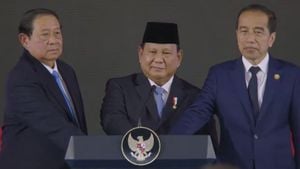The recent discovery of six letters written by celebrated author Yukio Mishima to the late Shintaro Ishihara has sparked renewed interest among historians and literature enthusiasts alike. These correspondences, uncovered among Ishihara's personal belongings, provide valuable insight not only to their friendship but also to the political sentiments of the time.
Mishima, who lived from 1925 to 1970, was one of Japan's most iconic literary figures. Ishihara, on the other hand, born in 1932, was not only known for his work as a writer but also as a significant political figure. This correspondence dates back to 1967 and consists of six letters, where Mishima, three years before his dramatic death at the Self-Defense Force Shinjuku Base, expressed encouragement and solicitude toward his younger peer.
Among the letters, one stands out where Mishima commented, "I would like to discuss the affairs of the nation with you; I feel very disappointed to hear of your illness," signifying the deep camaraderie they shared. This heartfelt expression sheds light on the warmth and respect reflected in their relationship. The letters were discovered during the organization of Ishihara's belongings by his family, indicating their historical importance.
One of the letters, dated March 1967, shows Mishima's care for Ishihara’s well-being, particularly during his time of illness. "I hope you take this time of sickness as an opportunity to observe the tumultuous movements of the world," Mishima advised, encouraging Ishihara to step back from the fray and take stock of the turbulent political climate surrounding them. This piece of advice proved to resonate deeply with Ishihara, who later referenced their correspondence and acknowledged how it aided him as he contemplated his own political aspirations.
Mishima had long been concerned with the direction Japan was heading. His thoughts on the sociopolitical issues of the time come through vividly in these letters. The discovery of this correspondence not only adds to the narrative of their relationship but also outlines the broader cultural anxieties of post-war Japan. Mishima’s reflections reveal his own preoccupations with the state of the nation, hinting at his broader philosophy and the ideological battles he would later stake his life on.
Despite their close friendship, Mishima and Ishihara's relationship took turns as they grew older. Notably, tensions surfaced due to their divergent political ideologies. Mishima, renowned for his nationalist sentiments, found himself at odds with Ishihara on several fronts. Before Mishima's suicide, the two had openly clashed on political platforms, with Mishima publicly criticizing Ishihara’s ties with the ruling Liberal Democratic Party.
Takashi Matsumoto, a professor known for his expertise on Mishima's writings, reflects on the significant philosophical threads woven between the two men. "The relationship between Mishima and Ishihara had its peaks and troughs, reflective of opposing political views," Matsumoto noted. The correspondence stands as a poignant reminder of their shared creativity and how societal pressures can shift interpersonal dynamics over time.
The letters also provide insight exploring how both men articulated their thoughts about Japan’s identity and future. Mishima’s approach often delved deep, analyzing the shifts occurring within the Japanese societal fabric, which he regarded with both affection and criticism. Their interactions unveiled the complicated nature of friendship blended with political discourse—a theme as relevant today as it was then.
All things considered, the recent find of these letters emphasizes the significance such historical documents hold, contributing to our enduring interest in the legacies of beloved cultural icons. Mishima and Ishihara, whose lives danced around the converging lines of literature and political life, represent the fervent creativity of their era as well as the conflict inherent within it.
The letters not only reflect personal sentiments exchanged between two prominent figures but also offer allegorical insights about the tumultuous Japan they lived through. They captivate not just as individual artifacts but as pieces of the larger narrative of Japanese history, and as such, their significance will reverberate through both literary and political domains for years to come.



